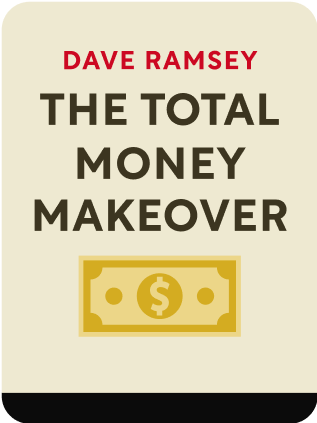

This article is an excerpt from the Shortform book guide to "The Total Money Makeover" by Dave Ramsey. Shortform has the world's best summaries and analyses of books you should be reading.
Like this article? Sign up for a free trial here .
What are Dave Ramsey’s mutual fund recommendations? Why are mutual funds good investments?
According to Dave Ramsey, mutual funds are the best way to build wealth over time. Specifically, for Dave Ramsey, mutual funds that have growth-stocks are ideal.
Read on for more information about Dave Ramsey, mutual funds, and investing.
Dave Ramsey: Mutual Funds and Building Wealth
For Dave Ramsey, mutual funds are the best way to build your wealth over time. You should invest in growth-stock mutual funds. (Shortform note: a mutual fund is a portfolio of stocks, bonds, and other securities managed by a professional. Individual investors can buy into it.)
According to Dave Ramsey, mutual funds for retirement may go up and down in value in the short term, but over the long term (more than five years), they provide an average 12% return on investment.
While this book isn’t a detailed investment guide, Ramsey recommends the following (for further investment advice, you may want to attend one of his classes or read his book Financial Peace):
1) Choose mutual funds with a record of growth for more than five years, preferably 10.
2) Spread your investment dollars over four types of funds:
- Growth and Income (25%); also called large cap or blue chip funds
- Growth funds (25%); also called mid cap or equity funds
- International funds (25%)
- Aggressive growth (25%); called small cap or emerging market funds
3) When deciding where to invest first:
- Start with your company 401(k) plan if the company provides a match.
- After that, fund two Roth IRAs. You can invest up to $5,000 a year in a Roth IRA and it grows tax-free. Investing $3,000 a year from age 35 to 65 will give you $873,000 tax-free at age 65—for a $90,000 investment. (Shortform note: Roth IRA contribution limits change periodically to keep up with inflation. The limit for 2019-20 is $6,000.)
Make sure that, in total, you’re investing 15% of your gross annual income.
How Much Will You Need to Retire?
According to Dave Ramsey, mutual funds for retirement are a crucial part of your retirement strategy. For a financially secure retirement, you should be able to live on 8% of your nest egg per year. If your investment returns average 12% annually and you take out 8%, your nest egg will continue to grow at 4% a year. The 4% growth enables you to keep up with inflation. For Dave Ramsey, mutual funds for retirement that hit this growth target set you up to live comfortably.
You should build the largest nest egg you can. To determine the total nest egg you’ll need, divide your desired annual income by .08. Here’s a worksheet to help you determine how much to save a month and how long it will take. For example, to live on $40,000 a year, you’ll need a total of $500,000.
Building wealth for retirement requires investing consistently over time—you won’t “get rich quick,” and you can’t jump in and out of investing. But the long-term results can be amazing. For example, if you make $50,000 (the average U.S. household income as this was written), and invest 15% ($7,500 a year or $625 a month) from age 30 to 70, you’ll end up with almost $8 million. If $625 a month sounds like a lot, remember that you won’t have any debt payments. In addition, you’ll probably increase your income over the years.
Disciplined investing now will create financial security in retirement. Starting earlier on investing is better, but starting at whatever age you are now is your only option.
Grow Your Nest Egg
At this step, you need to keep growing your wealth. While your nest egg may be substantial, if it’s under $10 million, continue to keep your investing simple.
Always manage your own money and stay on top of what it’s doing—but create a team of advisors to guide you when necessary. Look for teachers, not experts or people who try to take over your finances. You might include, for example, an estate planning attorney, a CPA, an insurance professional, a Realtor, and a financial planner. Also be aware of whether the advisor will profit from the advice she gives you.
You’ll reach a turning point, where your money is, in effect, working more than you are—that is, when you can live on your investment income. To determine whether you’re there, multiply your total investments by .08 and if you can live on that amount annually, don’t be afraid to start drawing on your nest egg at up to 8% a year. Enjoy the fruits of your labor!

———End of Preview———
Like what you just read? Read the rest of the world's best book summary and analysis of Dave Ramsey's "The Total Money Makeover" at Shortform .
Here's what you'll find in our full The Total Money Makeover summary :
- The 7 steps to achieving financial stability (you'll love #7)
- A fool-proof plan for becoming debt-free
- How myths about debt and money are crippling your financial health






